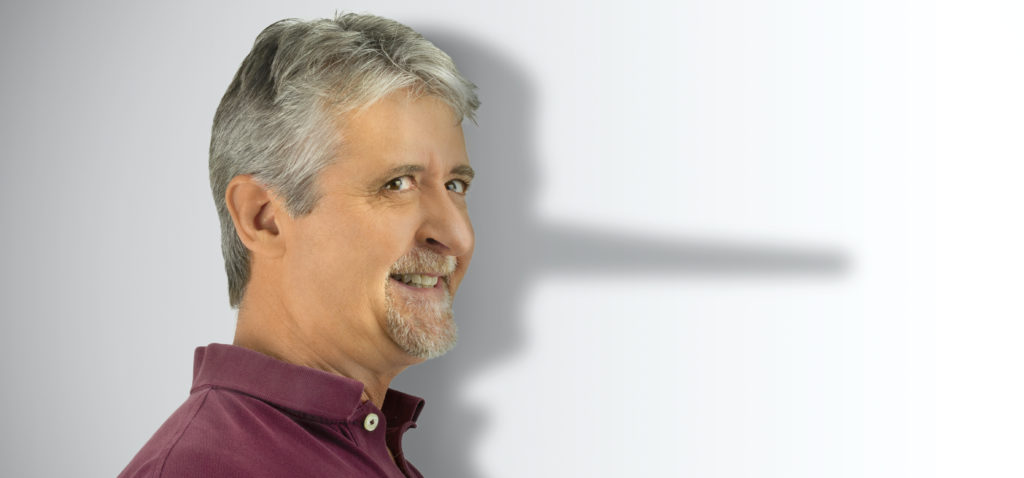Quick Hits
Daily brief research updates from the cognitive sciences

The one place that we can consistently catch people lying is in job interviews. And the question has long been how do you catch out these liars? The answer is you need to outsmart them.
But how?
Well lying uses cognitive resources. It is effortful because you have to construct an alternative narrative in your head and then keep this in your mind as you answer questions on this, or questions related to this. It is an effortful process. Therefore, if you can disrupt this process, you can uncover the liars.
Professor Aldert Vrij, from the Department of Psychology at the University of Portsmouth used this principle to design an experiment to outsmart liars. The way he did this is to give interview participants a cognitive task – this cognitive task means participants need to use cognitive resources and so this makes it much more difficult to tell a convincing lie and stick to this accurately.
The experiment had participants interviewed about societal topics, but they were instructed to either represent their own honest views or to lie about their views. They were also given time to prepare for this interview, giving them the ability to prepare elaborate and convincing lies. They were also incentivised by being entered into a prize draw. However, they were also given a 7-digit license plate number to remember. And some were told that if they failed to remember this, they would have an additional task of writing down their opinions after the interview.
What were the results?
They found that the additional cognitive tasks made the liars stories less plausible but, interestingly, only if this was considered important. This shows that if it is not considered important, they do not commit the cognitive resources to it, and so can lie more effectively.
So, to catch out liars you need to give them cognitive tasks that they will engage in, and this will inhibit their ability to construct plausible lies.
This can be done in interviews but may be a problem in every day life!●

Andy Habermacher
Andy is author of leading brains Review, Neuroleadership, and multiple other books. He has been intensively involved in writing and research into neuroleadership and is considered one of Europe’s leading experts. He is also a well-known public speaker speaking on the brain and human behaviour.
Andy is also a masters athlete (middle distance running) and competes regularly at international competitions (and holds a few national records in his age category).
Reference
Aldert Vrij, Haneen Deeb, Sharon Leal and Ronald P. Fisher.
The Effects of a Secondary Task on True and False Opinion Statement.
International Journal of Psychology & Behavior Analysis, 2022
DOI: 10.15344/2455-3867/2022/185
More Quick Hits
Neurons for alcohol withdrawal
I’ve reported on alcohol a number of times. Most recently reporting that even low quantities of alcohol appear to age the brain (however, higher quantities are much worse). Researchers had previously found that a signalling molecule pathway in the brain seemed to...
How the Arts Help Self Control
Quick HitsDaily brief research updates from the cognitive sciencesome people criticise arts education, thinking that it is more play and has no clear life function. Normally a certain type of conservative. This is short minded; we know that arts...
How the gut communicates with your brain
Quick HitsDaily brief research updates from the cognitive sciences ust after publishing the article on Serotonin and stating that the gut and brain’s serotonin systems can be considered separate entities, out comes a piece of research to show that...
Are you an “elite sleeper”? It’s in your genes.
Quick HitsDaily brief research updates from the cognitive sciences ’ve reported many times on different aspects of sleep and how important this is for health in general and for brain health in particular. You can go here for a short review of all...
Controlling social mingling by laser
Quick HitsDaily brief research updates from the cognitive sciences here has been plenty of research into brain areas that contribute to our social brain but these researchers around Stephen Mague at Duke University went a step, or two, further and...
Exercise is Infectious
Quick HitsDaily brief research updates from the cognitive sciences his is an older study (2017) I came across and found fascinating. As many of you regular readers will know I have reported many times on the benefits of exercise. But this study was...






